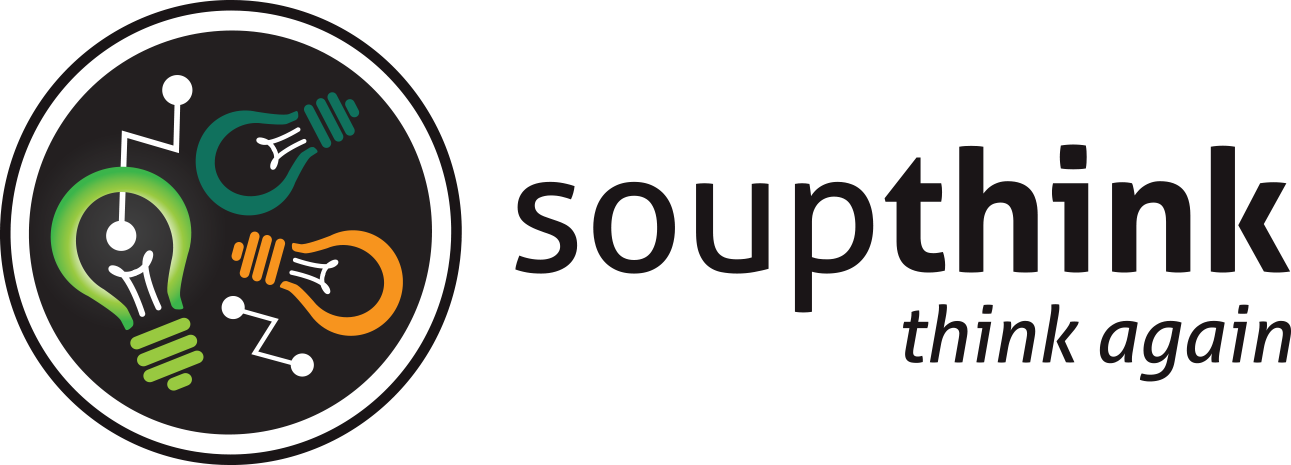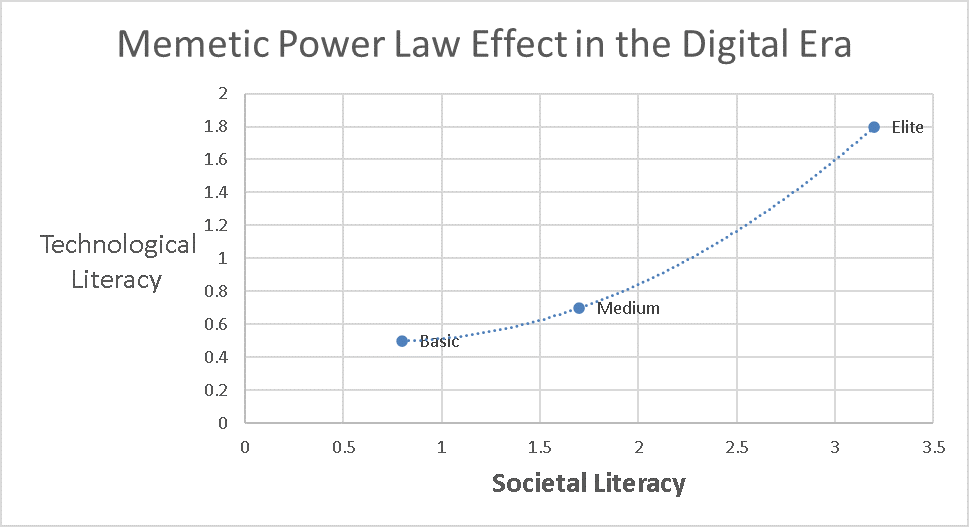Does memetics play a role in the knowledge gap?
I recently read about the invention of the silicon chip, and wondered about the gap in knowledge between who created such an invention then, and who creates similar inventions now. I have long been interested in how ideas and beliefs spread, and have recently discovered the field is called memetics[1].
I think that part of what explains the knowledge gap is not just basic literacy, but scientific literacy, and maybe also “societal” literacy. What I mean by that last expression is a broad understanding of who is in charge of (or at least knows about) particular topics, and how it all fits together. I think this is a learned skill, and a reflection of curiousity.
Perhaps the pattern looks something like this graph below? The first two dot points (Basic and Medium) reflect how things were (broadly speaking for developed nations) in the post WW2 analog era, where there wasn’t that much of a knowledge gap on either scale. The third dot point, though, shows the difference between being a “thought leader” in the analog and the digital era. (Please note that this is literally just a graph invented on the fly; the numbers have no meaning or basis in fact, they are just there to illustrate the point.)
So what else could sit behind such a graph? What makes an “elite” performer in terms of social literacy? After all, there are plenty of people who may create incredibly moving pieces of art, film or music, without necessarily using much technology. Likewise, there are many people who are very skilled in their own fields, and its particular technology…. but who have spent so much time and energy to learn it, that they don’t necessarily know much at all about other fields.
I think that part of the answer comes down to networks. Someone can be a big player in a small pond, but if that pond is somewhat disconnected, then I think that person’s impact can be limited by this constraint. So, geography plays a part – there’s a reason why industry clusters happen. Beyond that, of course, are racism, sexism, ageism, etc., and they limit participation, to everyone’s detriment.
I also think that there may be a personal aspect to this. In the analogue era, reading the trade press, and going to the annual industry dinner and various conferences might have been enough. Industry clusters have been around for a while, as have the concepts of “bridging” and “bonding” social capital.[2] So being social across a range of circles, especially industry leading circles, has never been harmful to one’s career.
But what if being in the right place for knowledge spill overs now requires a proactively planned approach? After all, you can’t really get first-mover advantage if you receive the same information at the same time as everyone else. Rather than seeing the news in the industry magazine or website, what if you are the one reporting that news TO the industry website? As such, is there value to firms in hiring someone to play this proactive role for them? Likewise, is there value in this role for individuals, as being a type of curator?
It occurs to me that this concept sounds very industrial, but I think it applies to all businesses. After all, everyone in business has customers and suppliers. I also wonder if there is a cultural aspect to this - do nations like Germany and Japan do this better? Is it something that happens naturally, or is it orchestrated?
What do you think?
[1] https://www.goodreads.com/book/show/584442.Thought_Contagion
[2] https://www.socialcapitalresearch.com/difference-bonding-bridging-social-capital/







